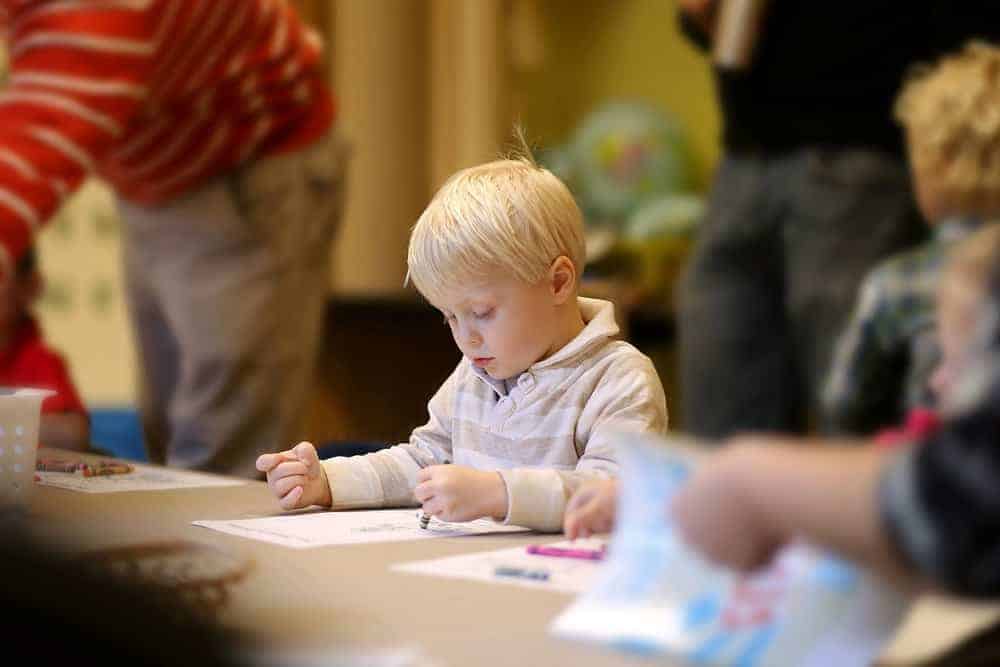

When legislators enacted the 2017-19 state budget last year, they could not have known that North Carolina would receive a fresh $74 million this year in federal funds for early childhood care and development. The money comes from the $1.29 trillion bill — $700 billion for the military, $591 billion for domestic programs — enacted by Congress and signed by President Trump in late March.
The windfall offered North Carolina an opportunity to regain momentum in fashioning a strong array of child care, health and educational services for children before kindergarten. With the creation of Smart Start in 1993 and of More at Four in 2002, North Carolina emerged as a national leader in early childhood initiatives.
And the state has research to show that its initiatives have worked, while they are still in need of strengthening and expansion to reach more children and families. For example, the FPG Child Development Institute at UNC-Chapel Hill evaluated NC pre-K (formerly known as More at Four) for 15 years, and reports that children who went through the program had better language, literacy, and math skills than children who had not participated.
“Poor children who attended the state pre-K program scored higher on third-grade reading EOGs (end-of-grade tests) and math EOGs than poor children who had not attended the program, based on a study of all third-graders in NC across two years using a treatment and comparison design,” says the FPG report. “Ninety percent of pre-k program participants are poor—i.e., qualify for free or reduced-price lunch.”
What’s more, several of the state’s corporate executives, led by Jim Goodnight of SAS, have stressed the need to “expand access to high-quality pre-K learning opportunities’’ and called for “literacy-infused professional development’’ for teachers through third grade. And, for a while, a bipartisan group of lawmakers met together to explore child development issues.
But instead of building on research, political support and experience in delivering early childhood services, the legislature’s budget-writers executed a double-shift with the windfall of federal funds. They substituted the federal block grant for federal needy-family assistance (TANF) that had supported the state child-care subsidy. They shifted TANF money to NC pre-K in order to replace $50 million in state funding.
The upshot is that Smart Start remains in place, and NC pre-K retains its $8 million in expansion funds. The budget would add 3,700 new subsidy slots, a welcome but modest dent in the 50,000 child waitlist.
Still, instead of having the entire $74 million in addition to current state support for early childhood programs, the legislature diverted $50 million to support other legislative fiscal decisions. The $50 million double-shift means the state will not grasp the full opportunity it had now for a leap forward.
The double-shift took place in the fast-track, no-amendment process that the Republican leadership designed for adjusting the two-year budget. House Appropriations Chair Nelson Dollar defended the process because, he said, key issues had been “fully debated, fully discussed, fully amended’’ in last year’s session. Of course, there was no debate over how to use the $74 million child care windfall that did not materialize until two months ago.
Before the current session opened, Gov. Roy Cooper had proposed a series of measures that would have deployed the entire $74 million on top of current state early childhood support. The Democratic governor contended that his proposal would add 1,000 new slots to NC pre-K and provide subsidies for 9,000 more children in child-care facilities. He also suggested adjustments to subsidy and pre-K rates, especially helpful in rural counties.
It is easy and facile to depict the differences over how to use the child care windfall as yet another partisan spat between a Republican legislature and a Democratic governor. In fact, a two-party system gives rise to differences over policy and budgeting that define for voters the choices they have to make every two years.
And North Carolina’s future vitality depends on how well the state helps, as it can, to lift up its youngest citizens.


